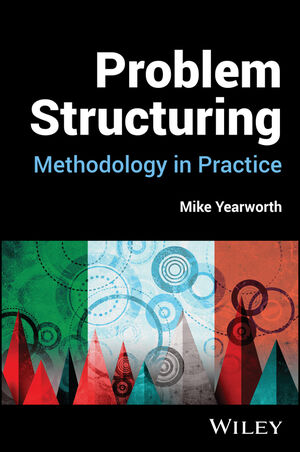New book available in September 2024

Current perspectives on approaches to problem structuring in operational research and engineering and prospects for problem structuring methods applicable to a wide range of practice.
Bridging between operational research (OR) and engineering practice, Problem Structuring: Methodology in Practice is grounded in the emergence of soft OR and its development over time as a distinctively new field, broadening the scope of OR to deal with issues of transforming, strategising, and planning in the context of wicked problems. The book is centred on a methodological framing of intervention processes known as problem structuring methods (PSMs) and the techniques presented are suitable for practitioners across a broad range of disciplines.
Problem Structuring: Methodology in Practice contains four linked sections that cover:
- Problem formulation when dealing with wicked problems, justification for a methodological approach, the emergence of soft OR, the relevance of pragmatic philosophy to OR practice.
- Traces debates and issues in OR leading to the emergence of soft OR, comparative analysis of PSMs leading to a generic framework for soft OR practice, addressing practical considerations in delivering PSM interventions.
- Charts the emergence of a problem structuring sensibility in engineering practice, introduces a new PSM based on hierarchical process modelling (HPM) supported by teaching and case studies, makes the case for a processual turn in engineering practice supported by HPM with relevance to OR practice.
- Evaluation of PSM interventions, survey of applications, use of group support systems, new developments supported by machine learning, re-contextualising soft OR practice.
Problem Structuring: Methodology in Practice is a thought-provoking and highly valuable resource relevant to all “students of problems.” It is suitable for any UK Level 7 (or equivalent) programme in OR, engineering, or applied social science where a reflective, methodological approach to dealing with wicked problems is an essential requirement for practice.
